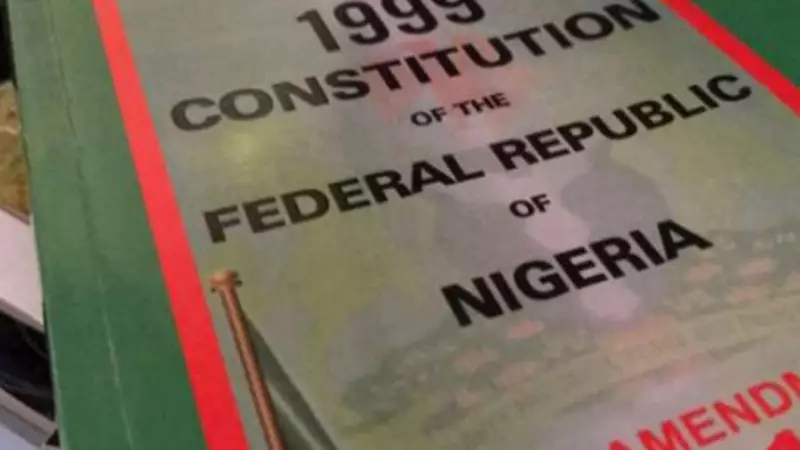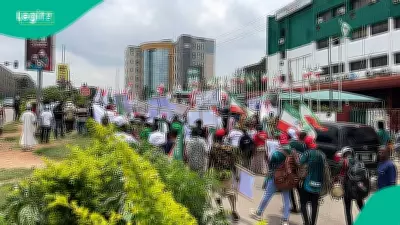
A fierce debate is raging across Nigeria's political landscape as calls for a national referendum intensify amid allegations of elite manipulation in the ongoing constitutional review process. The controversy has exposed deep divisions between Nigeria's political class and civil society organizations demanding genuine democratic participation.
Constitutional Reform or Elite Power Play?
The National Assembly's approach to amending Nigeria's foundational document has drawn sharp criticism from multiple sectors. Prominent civil society groups and political analysts argue that the current parliamentary-driven process excludes ordinary Nigerians from having a direct say in reshaping the country's governance structure.
"What we're witnessing is not constitutional reform but constitutional capture," declared Auwal Musa Rafsanjani, Executive Director of the Civil Society Legislative Advocacy Centre (CISLAC). "The elite are once again positioning themselves to consolidate power while shutting out the very people the constitution should serve."
The Referendum Alternative Gains Momentum
Pro-referendum advocates are pushing for a more inclusive approach that would allow citizens to vote directly on proposed constitutional changes. This method, they argue, would break the cycle of elite domination that has characterized previous amendment exercises.
Several key arguments are driving the referendum movement:
- Direct citizen participation ensures genuine democratic legitimacy
- Prevents political elites from watering down critical reforms
- Addresses fundamental issues like restructuring and resource control
- Creates opportunity for comprehensive rather than piecemeal changes
Historical Context of Constitutional Battles
Nigeria's constitutional history reveals a pattern of elite-driven processes dating back to independence. The current 1999 Constitution, inherited from military rule, has long been criticized as lacking genuine popular input. Multiple attempts at reform have failed to produce a document that truly reflects the people's will.
Recent National Assembly efforts have focused on various amendments, but critics maintain that the approach remains fundamentally flawed. The parliamentary route, they argue, inevitably leads to compromises that protect established interests rather than serving national transformation.
Stakeholders Take Positions
The debate has drawn in diverse voices from across Nigeria's political spectrum. While some legislators defend the current process as constitutionally proper, others acknowledge the need for broader consultation.
Civil society organizations are mobilizing to amplify the referendum demand, planning nationwide consultations and advocacy campaigns. Meanwhile, some state governors and political leaders are cautiously watching the developments, aware that genuine constitutional reform could significantly alter Nigeria's power dynamics.
The Path Forward
As pressure mounts, the National Assembly faces a critical choice: continue with the established parliamentary process or embrace the more democratic referendum approach. The outcome could determine whether Nigeria experiences another elite-managed constitutional adjustment or embarks on genuine national renewal.
The coming weeks are likely to see intensified advocacy from both sides, with the potential for this constitutional debate to become a defining issue in Nigeria's political landscape. The fundamental question remains: who should have the final say in reshaping Nigeria's governance framework—the political class or the people?





